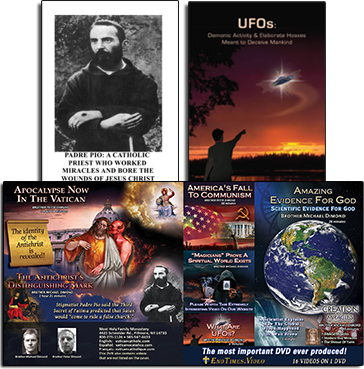Questions and Answers
July 3, 2004Hello
I have a question regarding John Paul's bent cross that he carries. I heard that it was a satanic symbol.
Appreciate your ministry and God Bless You,
Sincerely Doris
Doris, You are absolutely correct. Paul VI and John Paul II have both carried a symbol which few have understood - the sinister bent or broken cross on which the body of Christ is displayed as a repulsive or distorted figure. Satanists in the fifth and sixth centuries, as well as black magicians and sorcerers in the Middle Ages, used such figurines to represent their hatred for Christianity. The Museum of Witchcraft in Bayonne, France has woodcuts of symbols used in the black mass and witch Sabbath of the Middle Ages in which the broken cross was used as the symbol of the Antichrist. (source: The Broken Cross by Piers Compton)
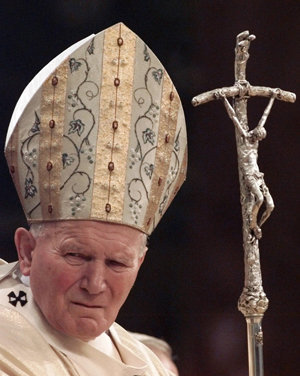
June 30, 2004Hi,
I have a question which you may have answered or addressed somewhere else so I apologize if it is a repeat.
What is your opinion based on church teachings, regarding the baptism of infants into the Vatican II sect? Specifically, if these babies were to die what are we to think about their eternity? They are being baptized into an anti-christ church using a changed sacrament which I assume makes it invalid. They are innocent babies, but without baptism am I right in saying they cannot go to heaven? Are they "marked” somehow by Satan as his since they are baptized into his church? I was just pondering this. This is a long question--sorry.
I really respect and appreciate all of the information/research you are making available. Your take on this would be much appreciated. It is a tragedy that innocent kids are being brought into that false church. It breaks my heart.
Thank you so much,
Rene
Rene, the Church teaches that anyone can baptize, provided he uses the matter and form and intends to do what the Church does - i.e., pronounce the words and pour the water.
So, as long as water is used, and the infant child of Novus Ordo parents is baptized in the name of the Father and of the Son and of the Holy Ghost, the baptism would be valid and those infants would therefore be validly baptized into the Catholic Church and would go to heaven if they died in infancy, just like the baptized infants of Protestant families who die in infancy would also go straight to heaven. The baptized infants who have Protestant or Novus Ordo parents don't become heretics until they knowingly embrace the Protestant or Novus Ordo heresy.
Pope Innocent IV, Council of Lyons I, 1254: "Moreover, if anyone without repentance dies in mortal sin, without a doubt he is tortured forever by the flames of eternal hell. But the souls of children after the cleansing of baptism, and of adults also who depart in charity and who are bound neither by sin nor unto any satisfaction for sin itself, at once pass quickly to their eternal fatherland." (Denz. 457)
Being below the age of reason, it is not possible for baptized infants to be heretics. So, as long as they are below the age of reason, they are members of the Catholic Church, despite belonging to a heretical family.
June 24, 2004Dear sirs,
I read my Bible but it is some times hard to know certain meanings. I hear people talke about saved and born again, to get to heaven. How do I get to heaven or like born again or saved. If you can tell me I would be greatly thankful.
TOMMY… NORTH CAROLINA
Tommy, the meaning of Jesus about the necessity to be born again is found in John 3:5. He says, "Unless a man is born again of water and the Holy Ghost he cannot enter into the Kingdom of God." This refers to water baptism. It means that no one can enter heaven without water baptism.
But getting baptized is not the only thing one must do to be saved. One must belong to the one Church Christ established (the Catholic Church), for he who refuses to hear the Church is like the heathen and publican (Matthew 18:17). We can tell you in more detail what you must do to belong to this Church if you contact us.
(more…)
June 21, 2004Dear Bro. Dimond, what is your comment on the book FATIMA AT TWILIGHT by Mark Fellows. Also, would you send me a copy of #6 of Crying in the Wilderness… Thank you.
Mary A.
Regarding the book Fatima in Twilight, the description of the events of Fatima were very well written and very interesting, as well as many of the facts dealing with the spread of Communism. I found those parts of the book to be very good. But many of the author’s conclusions about Sister Lucia, John Paul II, etc. are false and dangerous.
(more…)
June 7, 2004Do you if any Popes condemned Pentecostalism? My friends and I were involved in the Catholic NO Charasmatic movement for 25 years - my daughter graduated from Steubenville U. Now that I'm back in the Traditional Roman Catholic Church, I'd like to share what the Church has taught about this movement. Thanks for any info!
I’m not aware of any Popes who condemned it because it is a new phenomenon. But it is not traditional, it is ecumenical (involvement with Protestants and the Novus Ordo), so it must be rejected on that basis alone. Further, it involves things to which Catholics should naturally hold an aversion and recognize as not being Catholic and evil – e.g., speaking in gibberish, some even barking like dogs, and some even oinking like pigs. If your daughter is convinced of the Church’s traditional teaching on Outside the Church There is NO Salvation (please get our new book on this topic), and if she denounces all heretics, as well as the heresies of the Vatican II, John Paul II, etc., then she will naturally see that the Pentecostal movement is incompatible with the Traditional Catholic Faith.
June 4, 2004Dear Brothers,
In a discussion I had lately someone told me that the new ordinal for priests that started sometime around 1968 was invalid. Can this be true. I have no way to look this up myself.I hope I can rely on you to give me a hand with this information. Thank you!!
Yours Truly, Matt
Matt, the New Rite of Ordination was signed on June 18, 1968. It took effect on April 1, 1969.
May 31, 2004Dear Bros,
What is the Traditional Catholic teaching on young women leaving their household to live on their own. My 20 year old was contemplating the idea and I having been raised Mexican Catholic was taught it was wrong and disgraceful for a woman to move out on her own. So I conveyed that to her and I had her talk to a priest from the CMRI whom I expected to echo my wishes to her. Instead he "recommended" she not leave but assured her there was no sin in it.
So I asked an Old Catholic priest I met and he said it was a sin because the 4th Commandment is broken and a women should be under the care of a man (her father, husband, or in a convent). I myself believe it is a grievous sin to defy one's parents' wishes to simply live independently (that's how I was brought up). Who is correct here?
No hurry but please do respond. Thank you and God bless.
M. M.
M., there is nothing which precludes a woman over 18 from choosing to leave home and live on her own, provided she is planning to adhere to the Catholic Faith and live her life accordingly. But if she is moving out simply in the hope of being able to live a worldly or non-Catholic lifestyle then obviously she is not justified in her actions. So, to put it simply: there is nothing wrong with moving out; what matters is how she is planning on living her life when she moves out.
May 10, 2004Dear Brothers, do you think the Fatima Prayer after the decades of the Rosary expresses a sentiment of universal salvation in it?
Thank you and God bless.
Barbara
Barbara, I don’t believe it does. The prayer [O my Jesus, pardon us, save us from the fire of hell, draw (or lead) all souls to heaven, especially those in most need] is simply asking God to lead all souls to heaven; it is not asserting that all souls will make it. God wishes for all men to be saved and to come to the knowledge of the truth (1 Tim. 2:4), even though only just a few find it (Mt. 7:13; Luke 13:24).
May 5, 2004please can you tell me: 1-what is a material heretic- i saw it on your website and i am not sure what it is exactly-it's heresy but what is the exact definition and please give and example so i can under- stand it-and what is the history of this term? i tried finding it on the computer's old catholic terms dictionary and i couldn't find it listed-maybe i just wasn't doing the search correctly-but i did find heresy in it-but not material heretic- Sincerely, Maureen
Maureen, the whole issue of "material heresy" is explained in the article on our website called, "Why John Paul II Cannot be the Pope - a comprehensive presentation." There is a whole section on it. We would recommend that you look at it.
April 30, 2004Hi, I am a Sedevacantist and my husband is a defender of the SSPX. He refuses to look rationally at the facts I present to him, and dismisses me by saying that women are too emotional and aren’t capable of understanding any of these things, and that this is why no women have ever been condemned as heretics – they aren’t capable of being heretics and so aren’t capable of understanding the truth on these issues . Is this true?
Your husband is completely wrong. The Church has always taught that any woman who rejects Church teaching is a heretic. In fact, here is Pope Clement V denouncing and condemning as heretical a sect of women:
Pope Clement V 1311-1312: “We entertain in our heart a deep longing that the Catholic faith prosper in our time and that the perverseness of heresy be rooted out of Christian soil. We have therefore heard with great displeasure that an abominable sect of wicked men, commonly called Beghards, and of faithless women, commonly called Beguines, has sprung up in the realm of Germany. This sect, planted by the sower of evil deeds, holds and asserts in its sacrilegious and perverse doctrine the following errors…”(Decree # 28, Council of Vienne)
April 25, 2004Brother Peter or Brother Michael:
I have a question that will probably be coming up too often among the laity with the times we are in:
1) Suppose a priest has been validly ordained, but later became a homosexual after his ordination, does this automatically excommunicate him: no longer a priest? Or is he still a valid priest? Please explain.
2) Suppose a priest has been validly ordained and at the same time knew he was homosexual (entered the seminary and ordination with full knowledge and intention he is homosexual). What does this incur if a) he practices his sexual preferences, or b) practices "chastity"/celibacy and remains a homosexual?
Thank you and maybe you could consider briefly addressing this on your website as it has come to my attention that a lot of people are confused about this.
In Christ, Christine
Christine, the fact that a priest is a homosexual would have nothing to do with the validity of his ordination. Such a priest would be ordained validly, but would receive the Sacrament in a state of mortal sin. And once ordained validly he always remains a priest, even if he becomes a homosexual.
April 20, 2004Do you think Pope John Paul I was murdered or died naturally?
And why is the papal tiara no longer worn?
Christopher
Australia
We think that John Paul I was probably murdered. We think this because of the conflicting reports that the Vatican has issued surrounding his death. But just because he was probably murdered does not mean that he was a good man or even a valid Pope, of course. It is a fact that John Paul I was a heretic who embraced the religious indifferentism of Vatican II and even petitioned for approval of the birth control pill. The Vatican II Antipopes don’t wear the Papal Tiara as a symbolic way to show the enemies of the Church that they are infiltrators and on their side. Paul VI’s giving away of the Tiara (a picture of which can be seen in our photo gallery) was an obvious message to the world that he was a Satanic agent trying to give away the house, which is why he abolished the oath against Modernism, the profession of Faith of Trent, the Index of Forbidden books, changed the Mass, etc., etc., etc.
April 15, 2004I have learned much from your research. I was raised PreVat. II and attended 16 years of preVat. II education (including Thomistic theology) and must admit I was royally duped. But I do have the experience of being raised in the Roman Catholic Church. Now I watch the infighting between you… SSPX, CMRI, CFN, the Remnant, etc. and I am saddened that the Traditional Catholics can't come to the same truths - there are only the same truths in the Roman Catholic Church. How can you all be right??? If you all would just stick to the infallible teachings of the Popes from the Chair of St. Peter - the authority of Holy Mother Church - and Holy Scripture, we wouldn't be in this mess! It's taken me three years of much reading and research to reaquaint myself with the true Faith - after being so involved in the Conciliar Church for 35 years as well as the Charasmatic Renewal - had to get my Catholic thinking back! I now feel ready to go to family, friends, priests in the Conciliar Church with this Truth, but if and when they would decide to go Traditional, where do I send them. They'll find out, like I have, that there is all this infighting, and it surely won't be easy for them to find the Truth when there is so much disagreement. Perhaps we all need to stop and pray and let God be God and lead us. None of us has all the Truth! (i.e., I've heard others criticize your stance on LaSalette and Fatima. the parts of each that haven't been approved by the Church, i.e. Tuy) God continue to bless you and your work. You have done a phenomenal job for Our Lord.
Thank you for your interest. The unfortunate divisions among those who profess to be traditional Catholics arise, simply, because those people you described above reject Catholic dogmatic teaching in one or more areas. So division from them in these areas of Faith is not desirable, but it is necessary, simply because they don’t accept the truth in totality. If all “traditionalists” would accept the dogmatic teachings of the Church without compromise, then there would be no division among traditionalists. But since this is not the case, there must be division from those who deny the truth, as there can be no unity with heresy. As Our Lord says, I came to not to bring peace upon the earth, but the sword – to divide (Matthew 10:34-37).
April 10, 2004Pope Eugene IV professed that even if a protestant or orthodox sheds his blood for Christ, he is still damned unless he incorporates himself with the Roman Catholic Church before his death. My question is " Isnt this saying contrary to Sacred scripture? Our Lord clearly stated "Whoever saves his life shall lose it, and whoever loses his life for My sake shall gain it. Furthermore, Jesus stressed "Blessed are you when they insult you, revile you and persecute you and speak all kinds of evil against you for My sake, be glad and rejoice during that day for your rewards are very great in heaven.
Please reply. Thanks and God bless.
Pope Eugene IV said that no one, even if he sheds blood for the name of Christ, can be saved, unless he has remained within the bosom and unity of the Church.
Many people shed blood IN THE NAME OF CHRIST, but not for Christ. The Protestants who reject the one true Catholic Faith and Christ's clear teaching on Confession (John 20:23), the Eucharist (John 6:54), the necessity of Baptism (John 3:5), etc. reject Christ’s truth, so their act of martyrdom is not for Him, but for Christ in name only– if it were truly for Him then they would accept His truth.
(more…)
March 26, 2004Brother Dimond,
What Mass do you accept at the Monastery?
Yours in Christ,
L.H.
We accept the Mass of Pope St. Pius V; we don’t approve of the invalid Novus Ordo, of course, and we don’t approve of the use of the 1962 Missal, the Mass of John XXIII – which is the same as the Mass of St. Pius V but with St. Joseph’s name illegally added to the Canon (as well as some other minor changes). We acknowledge that the 1962 Missal is valid, since the addition of St. Joseph to the Canon has no bearing on validity, only legality. We also believe that in this time of crisis one can attend a Mass celebrated by a validly ordained priest who uses the 1962 Missal, as long as the person does not agree with or support the priest. Here is an interesting quote relating to this issue:
“In order to further the liturgical reform that Hebblethwaite [John XXIII’s biographer] claimed John ‘favored,’ the Pope ‘added to the Roman Canon the name of St. Joseph – beati Joseph, eiusdem Virginis Sponsi – a pious ruse to show that the text was not immutable [unchangeable],’ according to Hebblethwaite.” (Mark Fellows, Fatima in Twilight, p. 177)
In other words, according to John XXIII’s biographer, the whole reason for John XXIII to add St. Joseph’s name to the Canon was to show the Canon was not unchangeable and to pave the way for what later came with Antipope Paul VI – the New Mass.
December 3, 2003Promulgated solemnly by Pope Pius IV and the Council of Trent
- I, N., with firm faith believe and profess each and every article contained in the symbol of faith which the holy Roman Church uses; namely:
- I believe in one God, the Father almighty, maker of heaven and earth, and of all things visible and invisible; and in
- one Lord Jesus Christ, the only-begotten Son of God, born of the Father before all ages; God from God, light from light, true God from true God; begotten not made, of one substance (consubstantial) with the Father, through whom all things were made;
- who for us men and for our salvation came down from heaven, and was made incarnate by the Holy Spirit of the Virgin Mary, and was made man.
- He was crucified also for us under Pontius Pilate, died, and was buried; and
- He rose again the third day according to the Scriptures, and ascended into heaven;
- He sits at the right hand of the Father, and He shall come again in glory to judge the living and the dead, and of His kingdom there will be no end.
- And I believe in the Holy Ghost, the Lord, and giver of Life, who proceeds from the Father and the Son; who equally with the Father and the Son is adored and glorified; who spoke through the prophets.
- And I believe that there is one, holy, Catholic, and apostolic Church.
- I confess one baptism for the remission of sins; and I hope for the resurrection of the dead, and the life of the world to come. Amen.
- I resolutely accept and embrace the apostolic and ecclesiastical traditions and the other practices and regulations of that same Church.
- In like manner I accept Sacred Scripture according to the meaning which has been held by holy Mother Church and which she now holds. It is Her prerogative to pass judgment on the true meaning and interpretation of Sacred Scripture. And I will never accept or interpret it in a manner different from the unanimous agreement of the Fathers.
- I also acknowledge that there are truly and properly seven sacraments of the New Law, instituted by Jesus Christ our Lord, and that they are necessary for the salvation of the human race, although it is not necessary for each individual to receive them all.
- I acknowledge that the seven sacraments are: Baptism, Confirmation, Eucharist, Penance, Extreme Unction, Holy Orders, and Matrimony; and that they confer grace; and that of the seven, Baptism, Confirmation, and Holy Orders cannot be repeated without committing a sacrilege.
- I also accept and acknowledge the customary and approved rites of the Catholic Church in the solemn administration of these sacraments.
- I embrace and accept each and every article on Original Sin and Justification declared and defined in the most holy Council of Trent.
- I likewise profess that in Mass a true, proper, and propitiatory sacrifice is offered to God on behalf of the living and the dead, and that the Body and Blood together with the Soul and Divinity of our Lord Jesus Christ is truly, really, and substantially present in the most holy Sacrament of the Eucharist, and that there is a change of the whole substance of the bread into the Body, and of the whole substance of the wine into the Blood; and this change the Catholic Church calls transubstantiation.
- I also profess that the whole and entire Christ and a true Sacrament is received under each separate species.
- I firmly hold that there is a purgatory, and that the souls detained there are helped by the prayers of the faithful.
- I likewise hold that the saints reigning together with Christ should be honored and invoked, that they offer prayers to God on our behalf, and that their relics should be venerated.
- I firmly assert that images of Christ, of the Mother of God ever Virgin, and of the other saints should be owned and kept, and that due honor and veneration should be given to them.
- I affirm that the power of indulgences was left in the keeping of the Church by Christ, and that the use of indulgences is very beneficial to Christians.
- I acknowledge the holy, Catholic, and apostolic Roman Church as the mother and teacher of all churches; and…
- I unhesitatingly accept and profess all the doctrines (especially those concerning the primacy of the Roman Pontiff and his infallible teaching authority) handed down, defined, and explained by the sacred canons and ecumenical councils and especially those of this most holy Council of Trent (and by the ecumenical Vatican Council I). And at the same time:
- I condemn, reject, and anathematize everything that is contrary to those propositions, and all heresies without exception that have been condemned, rejected, and anathematized by the Church.
- I, N., promise, vow, and swear that, with God’s help, I shall most constantly hold and profess this true Catholic faith, outside which no one can be saved and which I now freely profess and truly hold. With the help of God, I shall profess it whole and unblemished to my dying breath; and, to the best of my ability, I shall see to it that my subjects or those entrusted to me by virtue of my office hold it, teach it, and preach it. So help me God and His holy Gospel.










 " />
" />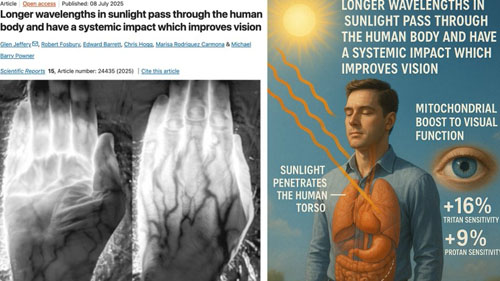 " />
" />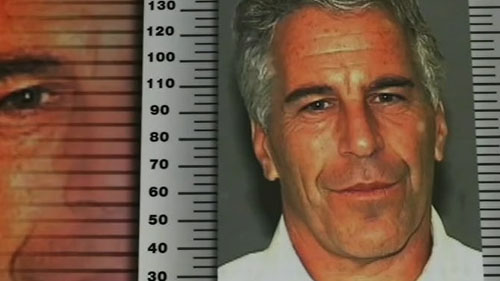 " />
" />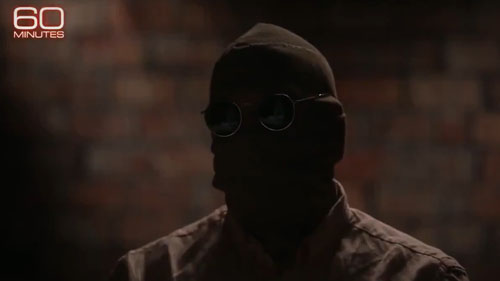 " />
" /> " />
" />





